Symposiums--SIGCSE China(Venue : Wanda Realm )
organizers
General Co-Chairs:
Ming Zhang (Peking University)
Juan Chen (National University of Defense Technology, China)
TPC Co-Chairs:
Ying Qian (East China Normal Unviersity)
Mengying Zhao (Shandong University)
Organizing Committee:
Qiao Xiang (Xiamen University)
Xiaochun Yang (Shanghai AchieveFun Info Tech Co., Ltd.)
Junlin Lu (Peking University, China)
Yun Feng (Northwest University)
Publicity:
Zichen Xu (Nanchang University)
Ke Zhang (Institute of Computing Technology, Chinese Academy of Sciences. University of Chinese Academy of Sciences.)
Bin Xu (Northeastern University)
Meeting schedule
| Date(2023-07-29)Location(VIP Room) |
||||
| Time | Talks | Speaker | Moderator | |
| 13:30-13:50 | Invited Talk 1 | Thoughts on Pedagogical Advances in Teaching Computer Science | Joe Turner,ACM Fellow, ABET Fellow, CSAB Fellow | Yun Feng,Zichen Xu |
| 13:50-14:10 | Invited Talk 2 | Reflections on the Evolution of Software Engineering Education | Nancy Mead,IEEE Fellow, Carnegie Mellon University | |
| 14:10-14:30 | Invited Talk 3 | Competency and the Future of Computing | John Impagliazzo,IEEE Fellow,Hofstra University | |
| 14:30-14:50 | Invited Talk 4 | The Building of AI Program via the Tree of Knowledge | Jingyuan Chen,Zhejiang University | |
| 14:50-15:10 | Invited Talk 5 | Automatic Generation of a Curriculum based on ACM/IEEE-CS Computing Curricula 2020 | Ernesto Cuadros-Vargas,CLEI, CTO of FuXion Biotech Holdings | |
| 15:10-15:20 | Coffee Break(poster) | |||
| 15:20-15:50 | Panel | Ying Qian, Xiaochun Yang | ||
| 15:50-15:55 | SIGCSE Rising Star Talk 1 | Experience Sharing: Research-Oriented Computing Education in Peking University | Jie Zhang, Peking University | Mengying Zhao、Ke Zhang |
| 15:55-16:00 | SIGCSE Rising Star Talk 2 | Simple Thoughts on the Teaching and Research of Computer System | Zhirong Shen, Xiamen University | |
| 16:00-16:05 | SIGCSE Outstanding Dissertation Talk 1 | Discussion on the innovation of compilation course based on domestic chips | Youhui Bai, Huawei Central Research Institute | |
| 16:05-16:10 | SIGCSE Outstanding Dissertation Talk 2 | Internet of Things teaching and research practice exploration -- taking wireless sensing as an example | Yutong Liu, Shanghai Jiaotong University | |
| 16:10-17:00 | SIGCSE China Council Meeting | Min Zhang | ||
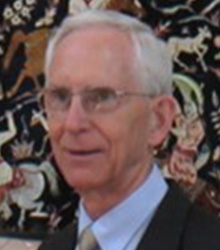
Title:Thoughts on Pedagogical Advances in Teaching Computer Science

Joe Turner
Professor Emeritus of Computer Science at Clemson University
Fellow of Association for Computing Machinery (ACM)
Fellow of Accreditation Board for Engineering and Technology (ABET)
Fellow of Computing Sciences Accreditation Board (CSAB)
Abstract:When computer science (CS) undergraduate programs began to proliferate in the USA and many other countries in the 1970s, the programs tended to be more theoretical than CS programs are today. As experience was gained with the programs and the needs of graduates for computing jobs, the programs became more applications-oriented but still with substantial theoretical content. The trend toward developing marketable skills in the programs continued with the addition of laboratory components for many courses to provide more hands-on learning activities for students. Additionally, interaction with companies who hire CS graduates repeatedly emphasized the need to include professional skills, such as communication, teamwork, professional interaction, and social/ethical considerations, in the learning activities of CS students. At about the same time that laboratory components for CS courses were being implemented at many universities, increasing interest in pedagogical improvements in student learning was evident through the professional exchanges that ACM SIGCSE and other computing education organizations fostered. It became clear that in addition to what was taught in computer science courses, how it was taught was very important for effective student learning and skills development. Since then, there have been many papers in SIGCSE and other education conferences and journals about the effectiveness of using appropriate tools, such as algorithm visualization, debugging, and APIs, to improve learning effectiveness, as well as the effectiveness of pedagogical practices, such as flipped classrooms, pair programming, code reading before code writing, and mastery grading. We now have a potential tipping point with amazingly-capable large language models (LLMs) such as ChatGPT and Copilot that have burst on the scene within the past several months. This talk will review some of the pedagogical practices that have been used to improve student learning in CS programs. It will conclude with some speculation on the disruptive effect that LLMs may have on CS education.
Bio:Joe Turner was Founding Head of the Department of Computer Science (now the School of Computing) at Clemson University from 1978 to 1992. He also served as Professor, and then Dean of the College of Information Systems at Zayed University in the UAE 2001-2004. He received his PhD in Computer Science from the University of Maryland in 1976. He is a Fellow of ACM, ABET, and CSAB, and he has served as Vice-President of ACM and as Chair of the ACM Education Board, a Vice-President of IFIP and as Chair of the IFIP Publications Committee, and the Founding Chair of the Seoul Accord. He has chaired more than 35 ABET accreditation reviews in 8 countries and has served as accreditation consultant for more than 50 universities in 9 countries.
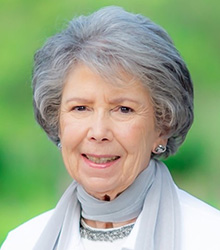
Title:Reflections on the Evolution of Software Engineering Education

Nancy Mead
Professor of Software Engineering at Carnegie Mellon University
Fellow of Software Engineering Institute (SEI),Life Fellow of the IEEE
Distinguished Member of the ACM
Abstract:From its beginnings in 1968, software engineering has evolved to a well-defined engineering discipline with strong educational underpinnings. It is now an important aspect of most computer science degree programs, and in addition there are substantial numbers of software engineering degree programs. We find software engineering degrees at the undergraduate and graduate levels at universities. In some cases, the focus is on software engineering practice and in others on software engineering research. We will discuss the evolution of software engineering education and software engineering principles, as well as future needs. We will also take a closer look at the software engineering degree programs at Carnegie Mellon University. CMU’s goal has been to provide its software engineering graduates with a deep understanding of the principles of software engineering, so that regardless of whether their goal is research or practice, they are prepared to reflect on and improve software engineering over the course of their careers.
Bio:Nancy Mead is a Fellow of the Software Engineering Institute and Adjunct Professor of Software Engineering at Carnegie Mellon University. Her research areas are software and security requirements engineering and software engineering and software assurance curricula. The Nancy Mead Award for Excellence in Software Engineering Education & Training is named for her. She has more than 200 publications and invited presentations. Her awards and honors include: Life Fellow of the IEEE, Distinguished Member of the ACM, IEEE TCSE Distinguished Educator,IEEE TCSE Executive Board, Parnas Fellow at Lero the Irish Software Research Center, IEEE Distinguished Visitor Program. She has a BA, MS, and PhD in mathematics from NYU.
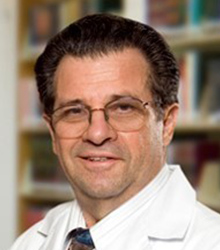
Title: Competency and the Future of Computing

John Impagliazzo
Professor of Computer Science, Hofstra University
Fellow of Institute of Electrical and Electronics Engineers (IEEE)
Distinguished Educator of Association for Computing Machinery (ACM)
Abstract:The purpose of program competency is to ensure quality in learning that blends knowledge with skills and dispositions (behaviors) toward a degree. Industry and government employers are highly keen on hiring computing graduates who can perform on the job almost from the first day of work. Since approximately only 5% of computing and engineering graduates continue their learning to graduate school, 95% of all graduates enter the workplace. Graduates must fit within the job structure of an employer through the dispositions they have acquired through character development and undergraduate experiences. They must also be able to perform the job tasks through their acquired skills. While knowledge couples with skills to accomplish a task, performance is critical for a successful career in the workplace. Hence, competency is a valued characteristic for all graduates, especially those entering the job market. This presentation focuses on the foundations that support competency in computing and engineering. The discussion addresses the components and activities involved with skills and dispositions surrounding the knowledge students acquire. Therefore, competency is much more than passing exams because its underlying theme is performance in accomplishing a task.
Bio:Professor Emeritus John Impagliazzo chaired the committee that produced the 2016 ACM/IEEE Computer Engineering Curriculum Report (CE2016) and was the principal co-author and editor of its predecessor, CE2004. Additionally, he was a committee member that produced the ACM/IEEE Computing Curricula 2005 Report (CC2005), which defined computing disciplines and has become one of the most used documents on the subject in the world. He was a co-author of the information technology (IT2017) report and is a co-author of the global computing curricular 2020 (CC2020) report. Impagliazzo chaired the IFIP Working Group 9.7 (History of Computing), served for many years on the IEEE History Committee, chaired the ACM Accreditation Committee for twelve years served in various capacities on the ACM Education Board for three decades. He is an ABET program evaluator for both computing and engineering programs. As a program evaluator or team chair for governments and agencies or as an expert consultant, he has evaluated more than eighty computing and engineering programs worldwide. Impagliazzo was the founding editor-in-chief of the ACM Inroads magazine, produced eighteen books, published hundreds of articles, promoted computing ethics, and helped develop a history of computing. Impagliazzo is a Fellow and Life Member of IEEE and a Distinguished Educator of ACM.
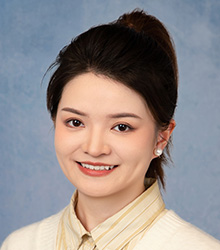
Title: The Building of AI Program via the Tree of Knowledge

Jingyuan Chen
Zhejiang University
Abstract:Cognition is an important manifestation of human intelligence, and its cornerstone and fuel are standardized knowledge (such as concepts, attributes, and relationships). Boosted by the standardized knowledge, understanding and classification of learning objects can be fulfilled. The convergence of the tree of knowledge between different disciplines is a return to the essence of science, helping to generate new knowledge and achieve breakthroughs in science. Artificial intelligence can play an important role as a catalyst and empowering tools in interdisciplinary interactions. As a result, demand for professionals who are hard-wired in AI technology knowledge but who also possess interdisciplinary perspectives and transferable skills is becoming increasingly important. This talk discusses the practice of building AI program by integrating "textbook, course and platform" via the tree of knowledge.
Bio:Dr. Jingyuan Chen is a ZJU100 Young Professor. She received her B.Eng. and Ph.D. degree from Beihang University and National University of Singapore (NUS), respectively. Her research interests lie primarily in AI for education, multimedia content analysis and information retrieval. Dr. Chen has published around 20 papers in ACM SIGIR, IEEE CVPR, AAAI, ACM MM. She has received the first prize of Science and Technology Award of Zhejiang Province in 2018 and IET Smart Cities best paper award in 2020, and was selected into Shanghai Rising-Star Program Program in 2023. Some of her research outputs have been integrated into the products of Alibaba.
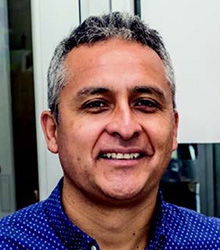
Title: Automatic Generation of a Curriculum based on ACM/IEEE-CS Computing Curricula 2020

Ernesto Cuadros-Vargas
Professor of Latin American Center for Computing Studies (CLEI), Peru
Member of Board of Governors of IEEE Computer Society
Chief Techology Officer of FuXion Biotech Holdings
Abstract:The process of constructing a curriculum is a task that typically requires a significant amount of time and effort in computer science departments worldwide. It is a well-known fact that ACM/IEEE-CS takes approximately 5 years to update its recommendations. Once a curriculum is finalized, there is also a need to incorporate extensive accreditation-related information. In this talk, we will demonstrate how to automate the entire process of generating a curriculum plan in less than 10 minutes, adhering to international standards.
Bio:Prof. Cuadros-Vargas received his PhD (2004) in CS at the USP-Brazil in common projects with CMU (USA) and TU-Berlin (Germany). He was a founder member of Peruvian Computer Society and president 8 years. He was also Executive Secretary of the Latin American Center on Computing (CLEI) until 2016. He was member of the IEEE-EAB (2006-2009) and the only latin american member of the Steering Committee of ACM/IEEE-CS Computing Curricula for CS (CS2013) and Computing Curricula (CC2020). Prof Cuadros has been Head of the School of Computer Science at UCSP en Arequipa Peru (2005-2016) and also at UTEC (Lima) since 2016. His main research areas are Higher Education in Computing Programs, Similarity Information Retrieval, Access Methods and Neural Networks.
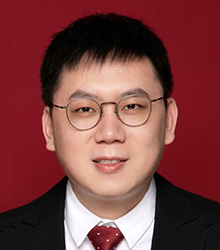
Title: Experience Sharing: Research-Oriented Computing Education in Peking University

Jie Zhang
Assistant Professor of Computer Science at Peking University
Abstract:Peking University is deeply involved in undergraduate education of computer science and has practiced diverse reforms and innovations. As a new faculty member in Peking University, I have experienced systematic undergraduate education in Peking University entirety. In this presentation, I will share the characteristics of computer science education at Peking University, including how research practices are implemented into undergraduate education and how to achieve a tight coupling between research and education. I will also introduce the details of my research group and recent progress in undergraduate education.
Bio:Dr. Jie Zhang is currently an assistant professor of the school of Computer Science at Peking University, China. He is engaged in the research and design of storage systems, non-volatile memory and specialized processors. His research addresses the requirements for high-performance storage systems in the era of big data and artificial intelligence from the perspective of computer architecture. He is dedicated to breaking through the bottlenecks of data migration and the limitations of memory walls in the Von Neumann architecture. He has published over 40 papers in top-tier conferences and journals and 22 papers as the first author, including ISCA, OSDI, HPCA, MICRO, FAST, DAC, Eurosys, PACT, TPDS and TACO.
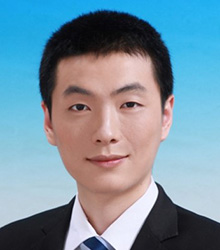
Title: Simple Thoughts on the Teaching and Research of Computer System

Zhirong Shen
Associate Professor of Computer Science at Xiamen University
Abstract:The computer system is an important part of managing the underlying hardware of the computer and supporting the upper-layer applications. This report mainly exchanges some preliminary understandings in the direction of computer system teaching and scientific research, including the mutual promotion of computer system teaching and scientific research.
Bio:Dr. Zhirong Shen received the B.S. degree from University of Electronic Science and Technology of China in 2010, and the Ph.D. degree in Computer Science from Tsinghua University in 2016. He is now an associate professor at Xiamen University. His current research interests include storage reliability and storage security. He has published more than 50 research papers at premier conferences and journals on computer systems, including USENIX ATC, ICDE, INFOCOM.
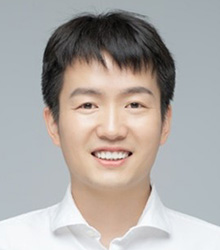
Title: Discussion on the innovation of compilation course based on domestic chips

Youhui Bai
Researcher at Huawei Central Research Institute
Abstract:Compilation principle is an important and fundamental topic in computer science, which bridges the huge gap between computer users and the underlying hardware. Most of the current domestic compilation courses are indeed completely designed to cover the whole process from lexical analysis, syntax analysis, and finally to the underlying code translation, but the underlying code translation is mostly based on emulation or Intel CPU chips. On the other hand, the current high-end chips are cut off, such as NVIDIA A100 and H100 GPU, seriously affect the development of China's artificial intelligence industry ecology. The good news is that the domestic has self-developed chips, such as Loongson CPU, Cambrian and Huawei's artificial intelligence chip, the bad news is that the computing tasks on these chips are limited by the efficiency of the underlying software stack, especially the computing operators, and most of them cannot fully exploit the computing capacity of the hardware itself. Compiler plays a very important role, which firstly can automatically generate the missing long-tail operators in the domestic chip, secondly can automatically search for the operators with high execution efficiency according to the hardware characteristics of the domestic chip and the computing characteristics of the application, and can also automatically fuse several operators to reduce the data moving overhead on the chip, and so on. In order to achieve this vision, a large number of technical experts in the field of compilation is needed, but there is still a large gap in such technical personnel in China, so the training of the curriculum during the college period becomes a very important part, so that students can get started in advance and do compilation optimization innovation on the domestic chip, which can train talents and also dig the problems of the chip and promote the improvement of the capability of the domestic chip.
Bio:I received my Ph.D. degree from the Advanced Data Systems Laboratory of the University of Science and Technology of China in 2021 under the supervision of Prof. Yinlong Xu and Principal Investigator Cheng Li, whose main research interests are distributed artificial intelligence training systems. I have achieved several advanced scientific results in related areas and published several papers in top international conferences or journals in the field of computer systems (such as SOSP, TPDS, ICPP, etc.). I have actively participated in academic discussion work, and have made several presentations in SOSP poster session 2017 in Shanghai, SOSP 2021, ChinaSys 2021 and other platforms, actively discussing with domestic and foreign researchers and exchanging with each other. I’m also ready to actively participate in academic service work and apply for the executive member of CCF architecture committee in July 2022 to contribute to the academic community. During my doctoral study, I have been a teaching assistant for many undergraduate and graduate courses, such as Graph Theory, Compilation Principles and Techniques, and Combinatorial Mathematics. My efforts and achievements have been partially recognized, and in June 2021, I was awarded the title of Excellent Graduate of Anhui Province, which is only one person in each graduating class. After graduation, I joined the team of Huawei Central Research Institute's Theory Research Department, and continued to work on the distributed artificial intelligence base software stack, doing innovative technologies based on domestic smart AI devices, and helping to open the ecology of domestic smart AI devices and algorithms.
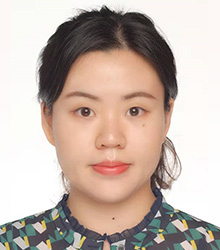
Title:Internet of Things teaching and research practice exploration -- taking wireless sensing as an example

Yutong Liu
Assistant Professor of Computer Science at Shanghai Jiao Tong University
Abstract:The competency model promoted in CC2020 requires a stronger emphasis on cultivating students' practical and innovative abilities in current education. This report takes the combination of Internet of Things (IoT) teaching and research practices as a starting point and discusses feasible solutions using wireless sensing for fruit quality perception, as an example. In this talk, I will introduce Wi-Fruit, a non-destructive and low-cost fruit moisture and SSC measurement system leveraging Wi-Fi channel state information (CSI) and image information. A double-quotient model and multi-modal ANN processing is proposed to cope with the fruit structure, size, and type dependency challenges. The fruit internal sensing capabilities of Wi-Fruit can help fruit saving and safety in both pre-harvest and post-harvest applications, exploring the practical values of multi-modal sensing.
Bio:Yutong Liu is currently an assistant professor in Shanghai Jiao Tong University. She has obtained her doctorate degree in June 2022. She acquired the 2022 ACM SIGCSE China Outstanding Ph.D. Thesis Award and funded by Shanghai Yangfan Talent Program in 2023. She has published 20 papers in high-quality international journals and conferences such as UBICOMP, COMST, JSAC, TON, TMC, etc., and won two best paper awards in IWQoS and PRICAI conferences. Her main research directions are multi-modal wireless perception, Internet of Things and artificial intelligence.

